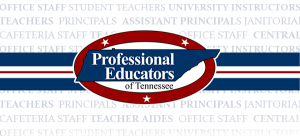Choosing the proper education for your child is crucial. While most families opt for local public schools, parents have other choices. “School choice” programs let families access schools beyond their neighborhood schools. The economic impact of universal school vouchers depends on the program's design and implementation. Research demonstrates that universal voucher programs primarily fund children already attending private schools.
Supporters say universal vouchers encourage choice, innovation, and efficiency, while critics cite equity, funding, and education quality issues. Private schools can choose students, but not all accept vouchers or serve disabled students, and some discriminate based on disability, religion, or language.
School choice lets families choose schools beyond their neighborhoods, but lack of transportation can hinder this. With private education vouchers, schools have the power to choose, not the students. Forty-two percent of rural districts in Tennessee have no private schools, and 84% have three or fewer, making it difficult for students to participate. Parents should make informed decisions to ensure their child is educated to their full potential. This includes the following.
- Open enrollment. Families can choose public schools outside their area code through open enrollment, inter-district, and intra-district choice programs. Public schools prioritize students within district lines.
- Magnet. Magnet schools or programs offer specialized programs for students with shared interests in public schools. Application and acceptance are required for enrollment.
- Career Academies. A career academy is the ultimate choice for a specialized high school education. It offers a rigorous college-prep curriculum with a career-oriented focus, comprising diverse academic subjects. Small learning communities integrate technical skills and academics for graduation and college admission. The curriculum aligns with private sector advancements, providing work-based learning opportunities to maximize student potential.
- International Baccalaureate Program. The International Baccalaureate (IB) Program is a rigorous college prep curriculum emphasizing liberal arts and sciences. Initially created in the '60s for a group of international schools, it's now offered in over 5,400 schools worldwide.
- Charter Schools. Charter schools are publicly funded and operated independently. A lottery is held to accept students when there are more applicants than open seats.
- Homeschool. Families in Tennessee have three options for K-12 education: homeschooling (independent or church-related) or enrollment in an accredited online school. Online schools offer a home-based alternative to traditional schools.
- Hybrid Model. Hybrid homeschooling combines the benefits of both homeschooling and traditional classroom learning.
- School Vouchers. Voucher programs provide families with partial or complete tuition vouchers to enroll their children in private schools, including religious and non-religious options.
- Traditional voucher programs. States require private schools to meet voucher criteria and reimburse education funds for tuition.
- Education Savings Accounts (ESAs). Publicly funded savings accounts for parents offer multiple uses, including paying for school-related expenses and college savings. However, they are only available to eligible students.
- Tax credit scholarships. States offer tax credits to businesses or individuals who donate to scholarship organizations. Eligible students can use funds for tuition at private schools.
- Universal vouchers. These universal school vouchers are available to all students in the state, including those who already attend private schools and those that had not previously attended public schools. This has the effect of adding new costs to the state education budget.
- Online Learning. Online learning is education conducted over the Internet, allowing students to work with their curriculum and teachers online. Online schools can be used in a public, private, or homeschool setting.
- Micro-schooling. Micro-schooling is a personalized education system tailored to individual students’ needs. It has become a popular option since the outbreak of COVID-19 and can be a part of public, private, or charter schools or operate independently.
Funding every type of school choice system without adequately funding public schools may not be sustainable in the long run. That is why vigorous debate is needed. The state of Tennessee is currently facing a revenue shortfall. The state is looking at $1.9 billion in franchise tax breaks and refunds to businesses, which will undoubtedly cause a more immediate loss of revenue. Additionally, the state is altering its method of charging franchise taxes, which will cost the state $400 million in revenue starting this year.
More importantly, universal vouchers may hurt other choice options. Policymakers should remember that you can change the zip code where a child attends a school, but they are not changing the home address. You will not address the real issues until you address the impact of factors outside the classroom on student achievement. This is an ongoing debate, but we must get it right, given this issue's critical and costly nature.
#
JC Bowman is the executive director of Professional Educators of Tennessee.











